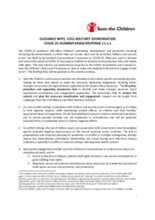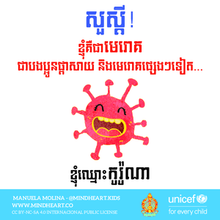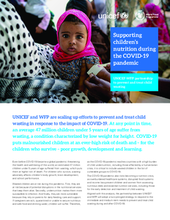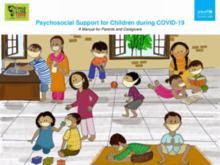Displaying 1541 - 1550 of 4431
This note informs Save the Children's humanitarian response to the COVID-19 pandemic.
The COVID-19 Learning Pathway aims to enable humanitarians, including local responders, to be best equipped to respond to the global pandemic COVID-19 (Coronavirus).
The Alliance of Child Protection in Humanitarian Action with UNHCR will be hosting a webinar to explore the key considerations for adapting child protection responses in refugee settings to the current pandemic, including broader protection considerations.
The Alliance of Child Protection in Humanitarian Action with UNHCR hosted a webinar to explore the key considerations for adapting child protection responses in refugee settings to the current pandemic, including broader protection considerations.
Este resumo é para os parceiros de desenvolvimento, incluindo o governo e a sociedade civil. Apresenta recomendações e recursos para responder às necessidades das raparigas, durante a crise de COVID-19 e no período de recuperação.
This book is written for children (in Khmer) to help them understand the Coronavirus.
This book is written for children to help them understand the Coronavirus.
This two-page brief outlines the UNICEF-WFP partnership's two-pronged strategy to respond to the immediate and medium-term needs to prevent and treat child wasting during and after COVID-19.
This dashboard contains the latest data from UNICEF’s global databases that are relevant to the COVID-19 response for children. Explore country-level data by gender, residence and wealth quintile.
In the context of COVID-19, this manual focuses on psychosocial care of children and prevention of violence in spaces where children stay (child care institutions, families, temporary isolation facilities, NGO shelters, etc.)






